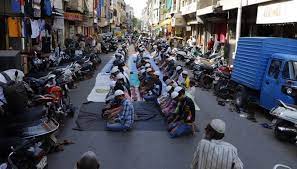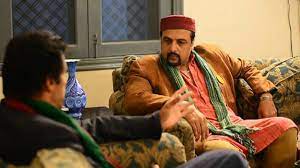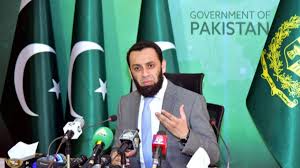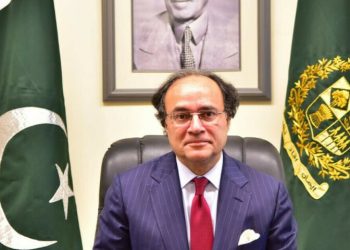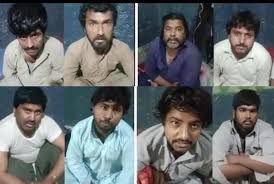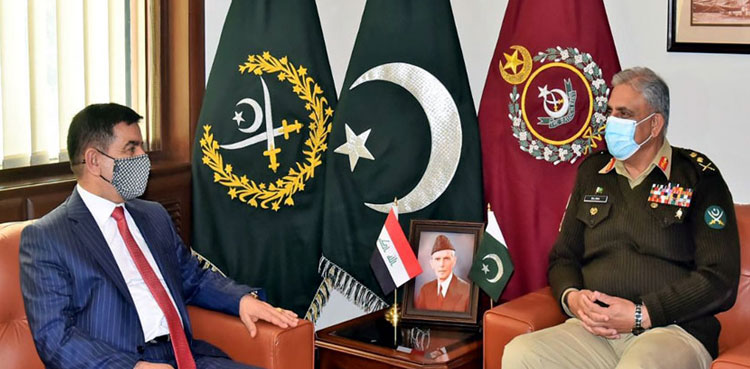The PTI chairman’s counsel Uzair Bhandari on Tuesday told the Supreme Court that the ISPR director general said on Monday that trials in military courts are under way.
“The press conference contradicts the attorney general for Pakistan’s statement,” he added.
The remarks came as the Supreme Court resumed hearing various petitions against the trial of civilians in military courts.
A six-member bench headed by Chief Justice of Pakistan Umar Ata Bandial is conducting the hearing. The bench also includes Justice Ijazul Ahsan, Justice Muneeb Akhtar, Justice Yahya Afridi, Justice Mazahar Naqvi and Justice Ayesha Malik.
Attorney General for Pakistan Mansoor Usman Awan, however, insisted that he stood by his statement, adding no trial against any civilian has been started in the military courts.
“We trust you,” CJP Bandial said.
Bhandari clarified that his arguments will only be limited to the trial of civilians.
Supreme Court Bar Association President Abid Zuberi earlier appeared on the rostrum and said he had also petitioned the court to become party to the case.
“We will welcome positive arguments,” the CJP remarked.
He further said he would not comment on the judicial powers on the trial of soldiers.
On being asked by Justice Yahya Afridi, the AGP said so far only Section 2(d)(2) of the Army Act has been applied to the suspects. He added that Section 2(d)(1) may apply later.
Justice Ayesha Malik asked how it will be determined whether the suspects will be tried in ordinary courts or military courts.
Justice Malik remarked that the FPLE case says some civilians can be tried in military court, adding this case deals with the relationship of civilians within the military institution.
Uzair Bhandari said whatever happens can only be done through a constitutional amendment.
The CJP asked which offenses fell under Section 2(d)(2), and asked the AGP to assist the court over this section.
Justice Akhtar remarked that in cases of emergency and war, trials can be conducted in military courts.
Lawyer Uzair Bhandari said the court-martial of civilians does not leave a good impression on the judicial system. He further said the military court trials will create an air of uncertainty in the country.
The FIR does not mention the Official Secrets Act anywhere, he asserted, and then read out the Section 2(d) of the Army Act.
“Can bail be applied on a sentence under the Official Secrets Act?” asked Justice Naqvi.
The petitioner’s lawyer responded that it was possible.
Bhandari told the court that the Protection of Pakistan Act was merged into a law and the anti-terrorism provisions added to it.
In 2017, the provisions of two years of the anti-terrorism law were added through an amendment, he added.
“How can allegations be made without evidence?” CJP Bandial asked, adding that this matter was beyond understanding, and the fault lay in the law.
Record shows that the details of the charges do not exist, Justice Ahsan added.
The FIR has been filed under the anti-terrorism act, while the trial is being conducted under the Official Secrets Act.
According to my client, the decision to conduct a trial under the Army Act is based on mala fide, Bhandari said.
Some authoritative voices are expressing doubts over the trials in military courts, he further stated.
Concluding his arguments, the PTI chairman’s lawyer requested for an open trial.
Petitioner Zaman Wardak submitted his written arguments in the case.
The AGP remarked that he will assist on the matter of Official Secrets Act not being mentioned in the FIR.
The charges were also provided while getting the custody of the suspects, AGP Awan said, adding that the process of getting the custody of the suspects was started after 15 days after the incidents of May 9.
The procedure to charge under the Army Act is mentioned in the rules, CJP Bandial remarked.
The AGP told the court that right now, 102 suspects are in the military’s custody, adding that they will be allowed to speak to their families on phone.
The food provided to the suspects is better than that provided in the ordinary jails, he went on to say.
Justice Malik asked the government lawyer why the list of those in custody is not being made public.
The CJP remarked that on Eid, everyone should know who all are in custody, adding all those detained must be able to speak to their loved ones over the phone on Eid.
“Make them speak to their families tonight,” Justice Bandial ordered.
“I will inform about making the list public in-chamber in an hour,” the AGP told the court.
He further said those under arrest were getting medical facilities and doctors were also present, adding there have been some incidents regarding journalists and lawyers.
No lawyer is under arrest, AGP Awan insisted, adding he knew a journalist was missing.
Is there an issue of death sentence in the present cases, asked the CJP.
The AGP responded that death sentence could be awarded in case of contacts with foreign countries.
The petitioners’ lawyers requested for a stay against military courts.
The AGP said no trial has begun yet, and it took time also. He added that the suspects will first get the opportunity to engage counsel.
The CJP ordered that he should be informed if something happens, and added that he was available from next week. “Special care should be taken with women and children,” he added.
The hearing was then adjourned indefinitely. CJP Bandial said the next date will be determined after the availability of the bench after Eid.








